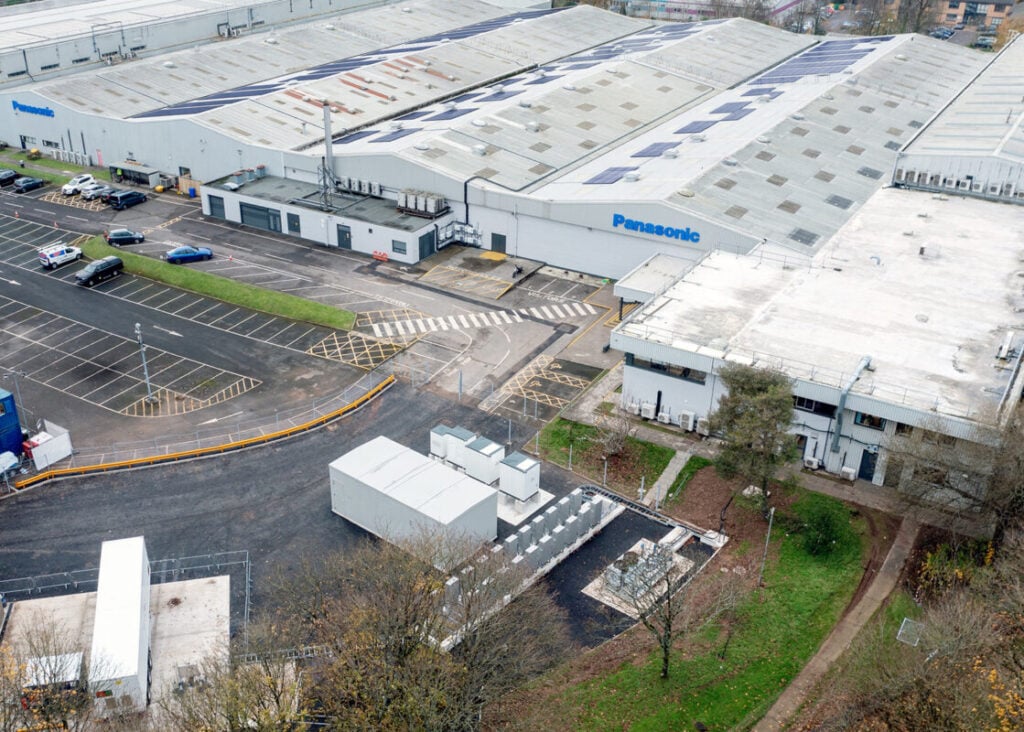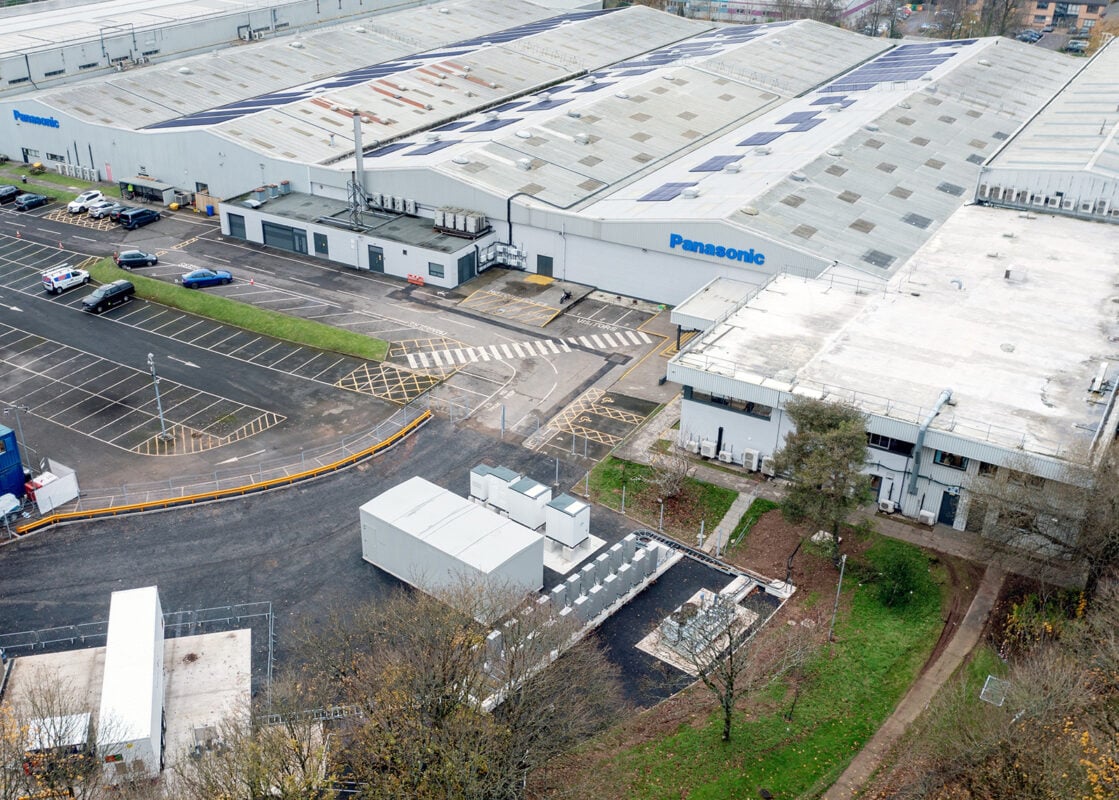
Japanese electronics manufacturer Panasonic will power its UK manufacturing facility in Cardiff through integrated control of three types of energy sources: pure hydrogen fuel cell generators, photovoltaic generators and storage batteries.
Panasonic announced on December 3 that it had completed installation and begun testing of a distributed power generation system consisting of 372 kW of solar PV, 1 MWh of battery storage and 21 units of 5 kW hydrogen fuel cell generators with a total capacity of 105 kW.
In November 2023, the company first announced it would upgrade the Welsh site, committing around €130 million (£113 million) to this within two years of commissioning. Panasonic said the main aim of the upgrade was to demonstrate that the site, which produces microwave ovens and small appliances, could be powered entirely by renewable sources.
An Energy Management System (EMS), which tracks changes in electricity demand and weather conditions, will begin operations by the end of March 2025, providing the factory with a stable supply of renewable energy. Panasonic states that it only generates and stores as much electricity as is needed on site.
The hydrogen fuel cell generators were also optimized for the amount of energy used in the plant. Last year, a 760kW solar power generation system was installed on the factory roof – some of this generation will be fed into the new power system, which also integrates newly installed battery storage.
By operating the demonstration plant, the company also wants to build relationships with local partner companies and business customers related to the hydrogen business in order to create a business basis.
Masahiro Shinada, President and CEO of Panasonic Corporation, said: “We sincerely hope that this facility can be used as a flagship project to promote diverse partnerships, accelerate innovation through the combination of technologies and contribute to the development of the UK's hydrogen technology.” Industry.
“In 10 or even 20 years, I hope this facility will be seen as the birthplace of innovation – where we helped build a hydrogen society and laid the foundation for a decarbonized future.”
